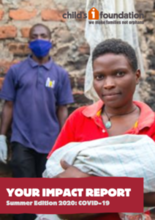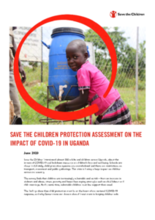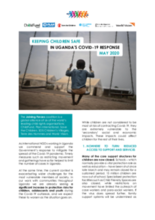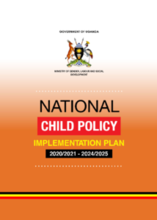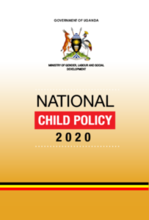This country page features an interactive, icon-based data dashboard providing a national-level overview of the status of children’s care and care reform efforts (a “Country Care Snapshot”), along with a list of resources and organizations in the country.
demographic_data
childrens_living_arrangement
children_living_without_bio
social_work_force
key_stakeholders
Key Stakeholders
Add New DataOther Relevant Reforms
Add New Datadrivers_of_institutionalisation
Drivers of Institutionaliziation
Add New Datakey_research_and_information
Key Data Sources
Add New DataThe Children Act (Uganda)
Country Care Review: Uganda
Prevalence and number of children living in institutional care: global, regional, and country estimates
The National Integrated Early Childhood Development Policy Action Plan (2016-2021) of Uganda
Catholic Care for Children in Uganda: A Family for Every Child - Findings from a Midterm Evaluation
Acknowledgements
Data for this country care snapshot was contributed by a consultant with the Data for Impact (D4I) Project at Palladium Group LLC.
Displaying 101 - 110 of 418
This report from Child's i Foundation provides an overview of the organisation's response to the COVID-19 pandemic in Uganda.
"The Government of Uganda, through the World Bank-funded Development Response to Displacement Impacts Project (DRDIP) project, is taking preventative action to combat violence against [refugee] children by creating an environment for children’s empowerment and participation," says this news release from the World Bank.
This report finds that children in Uganda are increasingly vulnerable and at risk from an in crease in violence and abuse, stress, poverty, and hazardous coping strategies such as child labour and child marriage during the COVID-19 pandemic. At the same time, vulnerable children have less support than usual.
When Mugalu* was adopted, his birth family says they were told they would still be able to speak to him regularly and he would come back for visits. “They said we would be one big happy family,” says his mother, Sylvia, wiping away tears. But Sylvia, 40, has not seen her son since he was adopted from Uganda almost seven years ago by an American couple. She is now fighting to get her son back, taking her case to the high court in Uganda and exploring her legal options in the US.
This briefing paper sets out how children in Uganda are being affected, and practical recommendations to the Government, donors and other key stakeholders.
This first webinar of a series focused on late-breaking research calling attention to the realities of vulnerable children in Uganda will focus on street-connected children as a particularly vulnerable demographic in Uganda.
Child's i Foundation in Uganda has donated bicycles, smartphones, face masks and bottles of sanitizer to volunteers in Makindye division, Kampala to support them in their work to "sensitize residents about the spread of COVID-19" and so that the volunteers can "reach places that are inaccessible" and give timely reports on the needs of the community, particularly vulnerable children and families, according to this article from the Daily Monitor.
Vulnerable children and families need a strong social support network that acts as a safety net to effectively and sustainably respond to the situation of children and families at risk.
This National Child Policy Implementation Plan (2020/2021-2024/2025) provides a roadmap and a common agenda of action to operationalise the National Child Policy (2020).
This National Child Policy has been developed to coordinate the efforts of the different sectors that have a direct and indirect mandate on children and deliver a comprehensive package of services encompassing all the four cardinal rights of the child in a multi-sectoral approach.

